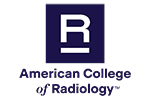Does radiation risk depend on age?
When given equal radiation doses, the risks for children and adolescents are greater than for adults. Children grow quickly, and their cells are more sensitive to radiation. Since effects of radiation take years to develop, their youth extends the time for any potential effects from ionizing radiation to occur. However, the radiation doses required to obtain pictures of children are much lower than adult levels. Because lower radiation dose levels are used for children and adolescents, the risk associated with their examinations does not need to be greater than that of an adult and is often much less.
As adults age, radiation exposure becomes less of a concern. The body tissues of older patients are less sensitive to the effects of radiation. Diagnostic exams like Computed Tomography (CT) can be important in the diagnosis and treatment of older patients.

Medical imaging can be extremely useful at any age to help with the diagnosis and treatment of many diseases or conditions. If a person of any age is involved in a serious car accident, a CT scan can be a quick and painless way to detect significant and perhaps critical internal injuries that are not apparent.

Even if the CT results are normal, showing no critical internal injury, that information is valuable. The results may lead to a more appropriate diagnosis which could prevent unnecessary surgery and speed recovery. Other medical conditions that imaging might reveal:
- Cysts
- Enlarged lymph nodes
- An aneurysm
- Inflammatory bowel disease
- Bleeding in the abdomen
- The presence of foreign objects
The unborn child of a pregnant woman is perhaps most sensitive to radiation. Diagnostic imaging exams that expose pregnant women to ionizing radiation should be conducted only after establishing the need for the exam and with careful consideration of the fetus. A limited number of properly performed imaging exams do not represent any concern for developmental defects. However, the risk for long-term health effects, although small, is uncertain. If you are pregnant, tell the medical staff before any imaging exam using ionizing radiation is conducted.
Medical imaging can be an essential medical tool to speed treatment and recovery. If your healthcare provider thinks that you, a family member or friend may have a significant medical condition, a diagnostic examination should not be refused because of the fear of radiation exposure. The risk associated with these tests is very small compared to the help provided by the imaging test.
This page was reviewed on June 07, 2024


